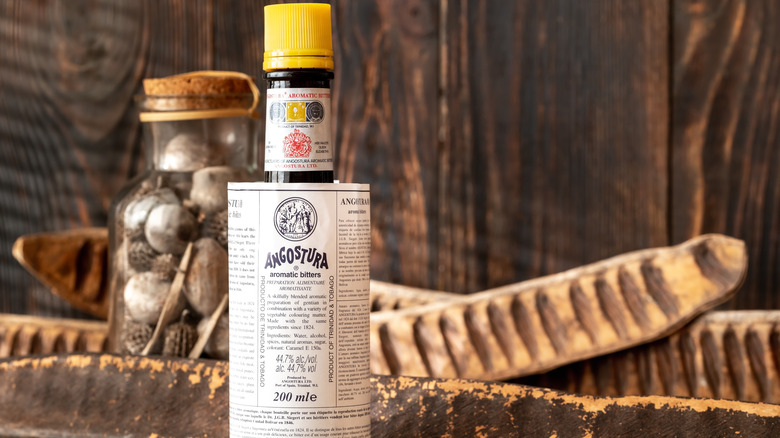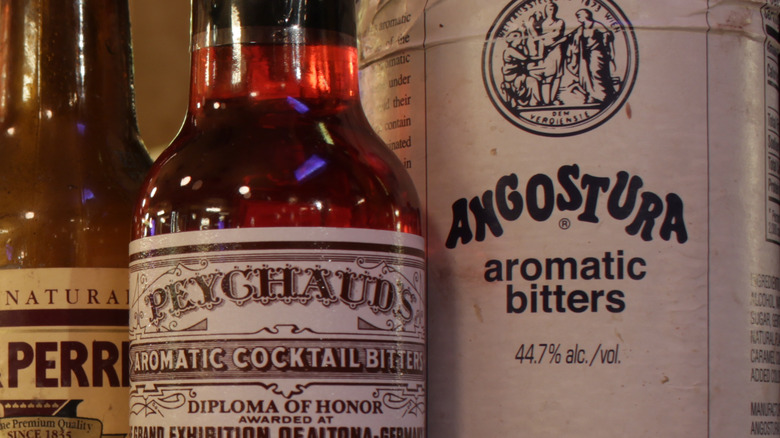How Long Does An Open Bottle Of Bitters Last?
Iconic cocktails like a punchy Sazerac or zesty Dark and Stormy owe their delightful edge to a few dashes of none other than bitters. Once a digestive aid, bitters have become the magic ingredient used to create balance and accentuate flavor in an array of tipples. A staple for any professional bartender or home mixologist, investing in a bottle can help you take your cocktails to the next level. However, you can only do that if bitters aren't past their prime, which begs the question of just how long an open bottle of bitters can truly last.
Made by infusing neutral liquor with botanicals, bitters can fall into various categories such as aromatic, citrus, herbal, fruit, or nut. Regardless of the variety, they remain pretty concentrated. But while they do have high alcohol by volume (often between 35% and 50% ABV) because they're used in such minuscule amounts, bitters are technically considered "non-drinkable" and thus, non-alcoholic.
As intriguing as the wide world of bitters may be, the most puzzling aspect is their shelf life. Although you might currently have one of these small bottles collecting dust in your liquor cabinet, we'd like to bring a few things to your attention.
Bitters last, but intensity fades
Technically, bitters can last forever. Since alcohol is a preservative, pungent tinctures have an almost indefinite shelf life when left unopened. Once they've been opened this changes slightly. Despite the fact that they can still last quite a while, more often than not, bitters can start to become more mellow and muted after the five-year mark — the only exception to this rule being perishable fruit bitters containing glycerin.
Given that oxidation and evaporation are the biggest threats to opened bottles of bitters, proper storage is crucial. First and foremost, it's wise to keep bottles tightly closed as this can prevent any oxygen from entering. Additionally, though it's not necessary to refrigerate them unless they're fruit-based, bottles should always be stored in a cool and dry area away from direct sunlight and heat. Helpful as these tips may be, even the best-kept bitters will start to degrade over an extended period of time, which is why you should try to make the most of the liquid once opened.
However, if you're not sure you'll host enough cocktail parties to finish bitters in a timely manner, cook with them. Just as you would use a few dashes in cocktails and mocktails, a splash of bitters can neutralize ultra-sweet jams or make for more interesting marinades, dressings, and dips. Despite how you put bitters to use, rest assured that you'll at least have a few years to figure out the best ways to use them!

